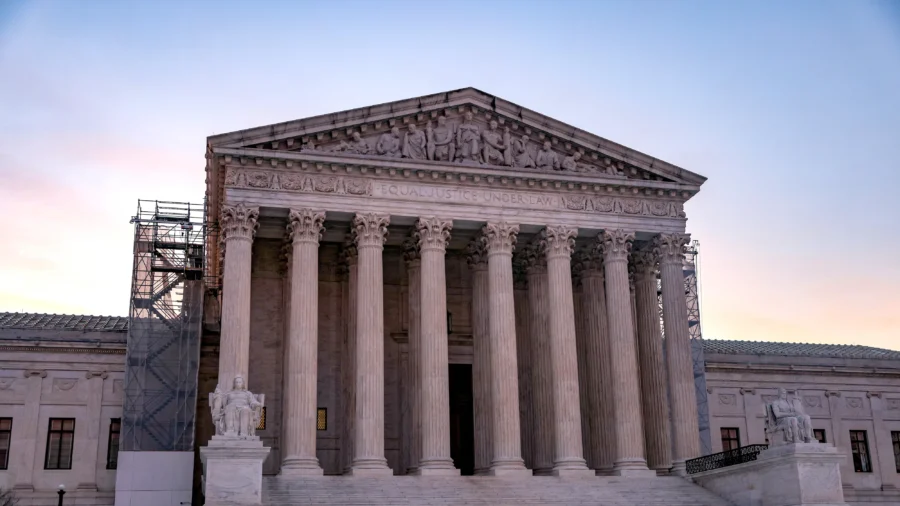The Supreme Court ruled unanimously on April 12 that a California county violated a landowner’s rights when it demanded upwards of $23,000 in development impact fees.
The ruling curbs the power of governments to use the permitting process to force property owners to pay large development fees and is one in a series of decisions in recent years by the Court in favor of private property rights.
Justice Amy Coney Barrett wrote the Court’s opinion in Sheetz v. County of El Dorado, finding that the unconstitutional conditions doctrine precludes the fees.
The doctrine forbids unrelated fees from being attached to permission to move forward with construction on private land.
In the case, homeowner George Sheetz sued El Dorado County, California, claiming it violated his rights under the Fifth Amendment’s takings clause and the 14th Amendment.
The Fifth Amendment states that “private property [shall not] be taken for public use, without just compensation.”
The 14th Amendment says that no state shall “deprive any person of life, liberty, or property, without due process of law.”
In 2016, Mr. Sheetz purchased a vacant lot, intending to build a small, manufactured home in which he and his wife would live in retirement.
But when he sought a building permit from the county, he was told he would have to pay a so-called traffic impact fee of $23,420.
The county informed Mr. Sheetz that he was required to pay the fee because of legislation that aimed to shift the cost of addressing existing and future road deficiencies onto new development.
His lawyers argued this meant that the fee was imposed without any evidence tying the construction project to any specific public costs or impacts.
The fee financing the unrelated road improvements bore neither an “essential nexus” nor “rough proportionality” to whatever local impact his construction project would result in, according to Mr. Sheetz’s petition to the Supreme Court.
He said the fee was an unconstitutional “exaction” according to the Supreme Court precedents of Nollan v. California Coastal Commission (1987) and Dolan v. City of Tigard (1994).
An exaction is a condition for development imposed on a developer to offset the costs of the project to a local government. It is similar to an impact fee, which is a direct payment made to a municipality in place of conditions being imposed on the development.
Mr. Sheetz paid the fee under protest and sued for a refund, arguing the fee was an unconstitutional permit condition under the Supreme Court’s 2013 ruling in Koontz v. St. Johns River Water Management District.
Justice Barrett wrote in the new opinion that the California Court of Appeal rejected Mr. Sheetz’s argument, “because the traffic impact fee was imposed by legislation, and, according to the court, Nollan and Dolan apply only to permit conditions imposed on an ad hoc basis by administrators.
“That is incorrect. The Takings Clause [of the U.S. Constitution] does not distinguish between legislative and administrative permit conditions,” the justice wrote.
Justice Sonia Sotomayor filed a concurring opinion, which Justice Ketanji Brown Jackson joined. Justice Neil Gorsuch filed his own concurring opinion.
Justice Brett Kavanaugh also filed a concurring opinion, which was joined by Justice Elena Kagan and Justice Jackson.
This is a developing story. It will be updated.
From The Epoch Times

